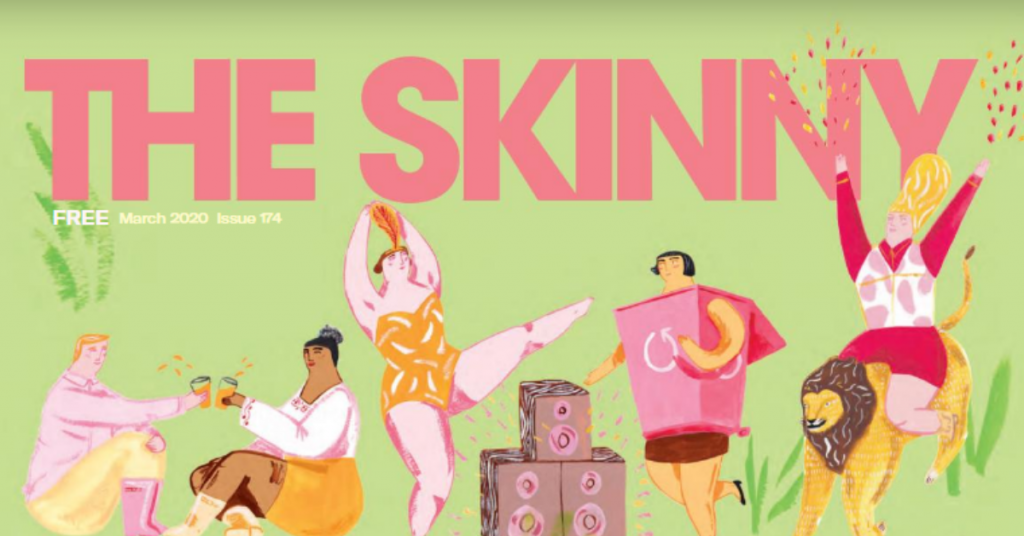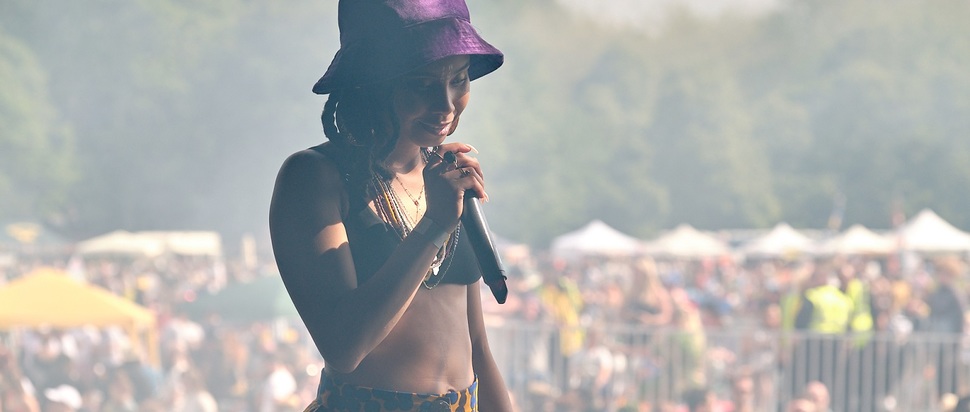
In 2019 Primavera Sound became the first major festival to proudly host a truly gender balanced line-up with its slogan The New Normal. For a moment it seemed a new precedent had been set. The myths about low ticket sales and a ‘lack of female artists’ had been vehemently disproved – surely it was just a matter of time before others followed suit. Then, as the first festival line-ups of 2020 were revealed, we all slipped slowly back into discontentment. There they were, the same horde of male bands who had occupied that space since the beginning.
Above the disappointment, however, rides a wave of positivity. While many of the major music festivals have chosen to ignore progress, more than 120 UK music organisations – many of them festivals – have promised to achieve a gender balance by signing up to the Keychange 50:50 pledge.
Led by Reeperbahn Festival (Hamburg, Germany, 16-20 Sep), the PRS Foundation and Musikcentrum Öst, Keychange is a pioneering international project which invests in female talent through championing emerging artists. They are also encouraging all music-based organisations to sign their gender balance pledge, effectively making a public promise to achieve a 50:50 line-up or roster by 2022.
“The Keychange gender pledge is now open to all music organisations so that everyone, at all levels of the music industry, can take responsibility and make change,” says Keychange Project Manager, Maxie Gedge. One Scottish festival that has signed the pledge is Glasgow’s own Flying Moon Music and Arts Festival (2020 dates TBC). The festival’s Director, Nicole Stapinski, tells us: “Flying Moon Music and Arts Festival is all about art, access and action. At its heart it exists to support Scotland’s women in frontlining the festivals they deserve.”
Gedge feels inspired by Scotland’s participation in the project, as, alongside Flying Moon, festivals such as Wide Days (Edinburgh, 23-25 Apr), Celtic Connections (Glasgow, 14-31 Jan 2021), XpoNorth (Inverness, 24-25 Jun) and Hebridean Celtic Festival (15-18 Jul) have all signed up. She says: “We are so encouraged by the action being taken by organisations in Scotland, including our 15 signatories and proactive PRS Foundation partners and friends such as the Scottish Government and the Scottish Music Industry Association.”

But it’s not just UK festivals who have signed up to the Keychange pledge. Many international countries have their fair share of participants, including the US. “We chose to partner with Keychange because we recognise that, as an industry, we are limiting our own ability to achieve our full potential by muting the voices of such a large part of our community,” Rehan Choudhry, founder of Las Vegas’ Emerge festival tells us.
So, what does he think needs to change for this to be achieved? “Until we have equal representation on not only our line-ups, but at all levels of our organisations, we will continue to operate with one hand tied behind our backs and the industry will continue to suffer because of it.”
Gedge agrees: “We have found that positive action is essential if we, as an industry, want to start breaking down the barriers that underrepresented genders face on their journey to festival stages.”
And thankfully it does seem that a lot of smaller UK festivals, even those who have not signed the pledge, do appear to be making the effort to change. Glasgow’s relatively new Playground Festival (Rouken Glen Park, 31 Jul-2 Aug) have just announced CHVRCHES and Neneh Cherry as two of its headliners while Green Man (Brecon Beacons, Wales, 20-23 Aug), has already announced an excitingly diverse line-up which includes Nadine Shah, Otoboke Beaver and Prima Queen. Then of course there are the women led festivals like Hear Her who have committed to running with all female line-ups from the beginning.
So, how can those who want to enact positive change go about it? Simple, explains Gedge. Just do it. “We encourage everyone to take that first step, and come forward to pledge their allegiance to equality at keychange.eu.”